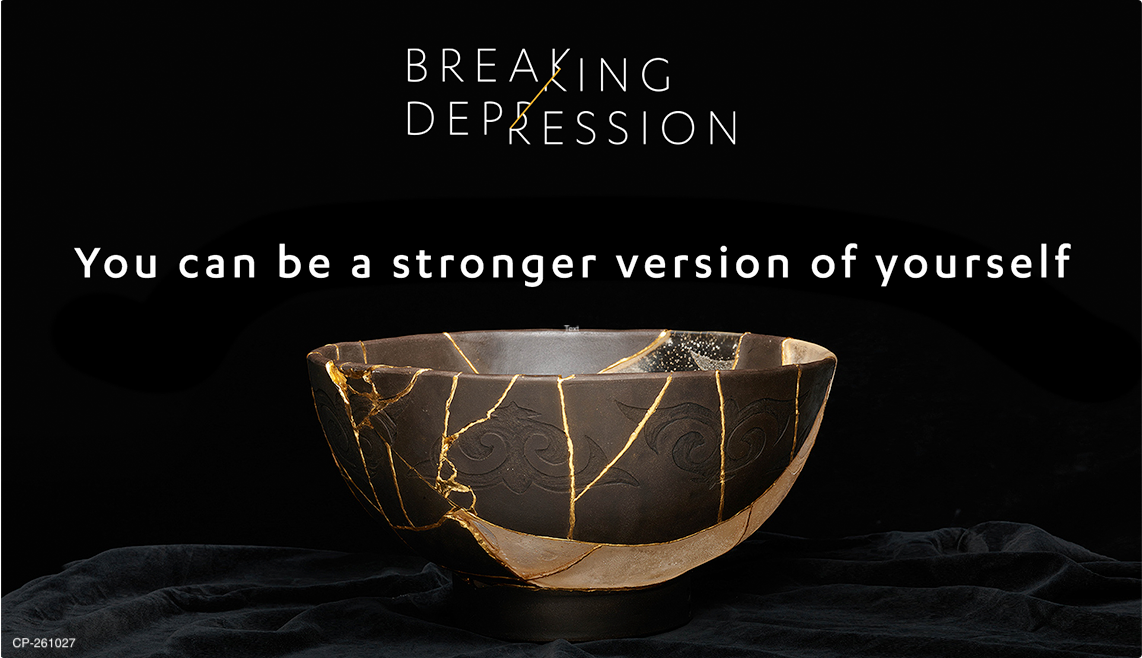Depression. and how you can find joy

Depression, or a major depressive disorder (MDD) is a mood condition that causes a person to feel down, lonely and sad. In addition to how it makes a person feel, it impacts how a person thinks, behaves and can lead to a number of emotional and physical problems.1
It’s important to remember that a major depressive episode is not just an episode of the ‘blues’ and may not just ‘go away’.

The symptoms of depression
Symptoms of depression need to be identified by a healthcare professional. Some of the symptoms include,2
A hopeless outlook
As depression is a mood disorder that affects the way a person thinks about life, one of the first symptoms is feeling helpless and hopeless. Accompanying symptoms include worthlessness, self-hate or inappropriate guilt.
Losing interest
Many people living with depression will lose interest in activities they once enjoyed. This is largely because depression takes the pleasure out of things a person usually enjoys.
Increased fatigue and sleep problems
Another tell-tale sign of depression is an overwhelming feeling of fatigue. This could also be responsible for losing interest as a person with depression will be too tired to do their usual daily tasks or the things they usually love.
Changes in appetite and weight
When a person goes through a depressive episode, their appetite is affected. This varies from person to person and may cause some people to lose weight while others may gain weight.
Uncontrollable emotions
Outbursts of anger, uncontrollable crying, unprompted mood swings or fluctuating emotions may present in a person with depression.
Suicidal thoughts
A person may contemplate suicide. In such situations, harmful objects should be removed and a carer should contact their doctor or the South African Depression And Anxiety Group (SADAG) urgently.

When a person experiences one or more of the above symptoms, it’s important to visit a healthcare professional as soon as possible. Your doctor will determine a diagnosis based on the following,
Physical examination
A physical examination will be conducted and your doctor will ask questions about your health. In some cases, depression may be linked to an underlying physical health problem.
Lab tests
Your doctor will conduct a series of blood tests to determine any physical imbalances.
Psychiatric evaluation
Your doctor will ask a series of questions to determine symptoms, thoughts, feelings and behaviour patterns. Thereafter your doctor will recommend the most appropriate treatment options to assist a person diagnosed with depression to rediscover the joy in life.
If you feel you might be experiencing the symptoms of schizophrenia, complete a personal assessment and make an appointment to visit a healthcare professional, who will help with a formal diagnosis and necessary treatment.

When it comes to Major Depressive Disorder (MDD), the causes often vary from person to person. However, it is important to bear in mind that the causes are often underlying and should be spoken about the moment a person feels an episode of the blues coming along.1
Some of the causes include,1
Biological differences
People living with depression appear to have physical changes in the chemicals of their brain. The significance of each change may be uncertain, but long-term treatment offers hope in finding the causes.
Brain chemistry
Neurotransmitters are natural chemicals in the brain and the slightest change in these chemicals, may cause a feeling of depression. It is often a chemical imbalance and the relationship between neurotransmitters and neurocircuits hold the key to assisting people living with depression through effective treatment.
Hormonal changes
Changes in the body’s hormones can often trigger a disruption to the neurotransmitters. This often happens during pregnancy, thyroid troubles and menopause, causing an onset of depression in a person.

Once a professional has diagnosed depression, they will suggest a way forward. This could consist of talk-therapy, prescribing medication and advising on coping mechanisms to assist a person living with depression to rediscover the joy in life.

If you feel you might be experiencing the symptoms of Depression, make an appointment to visit a healthcare professional, who will help with a formal diagnosis and necessary treatment.
